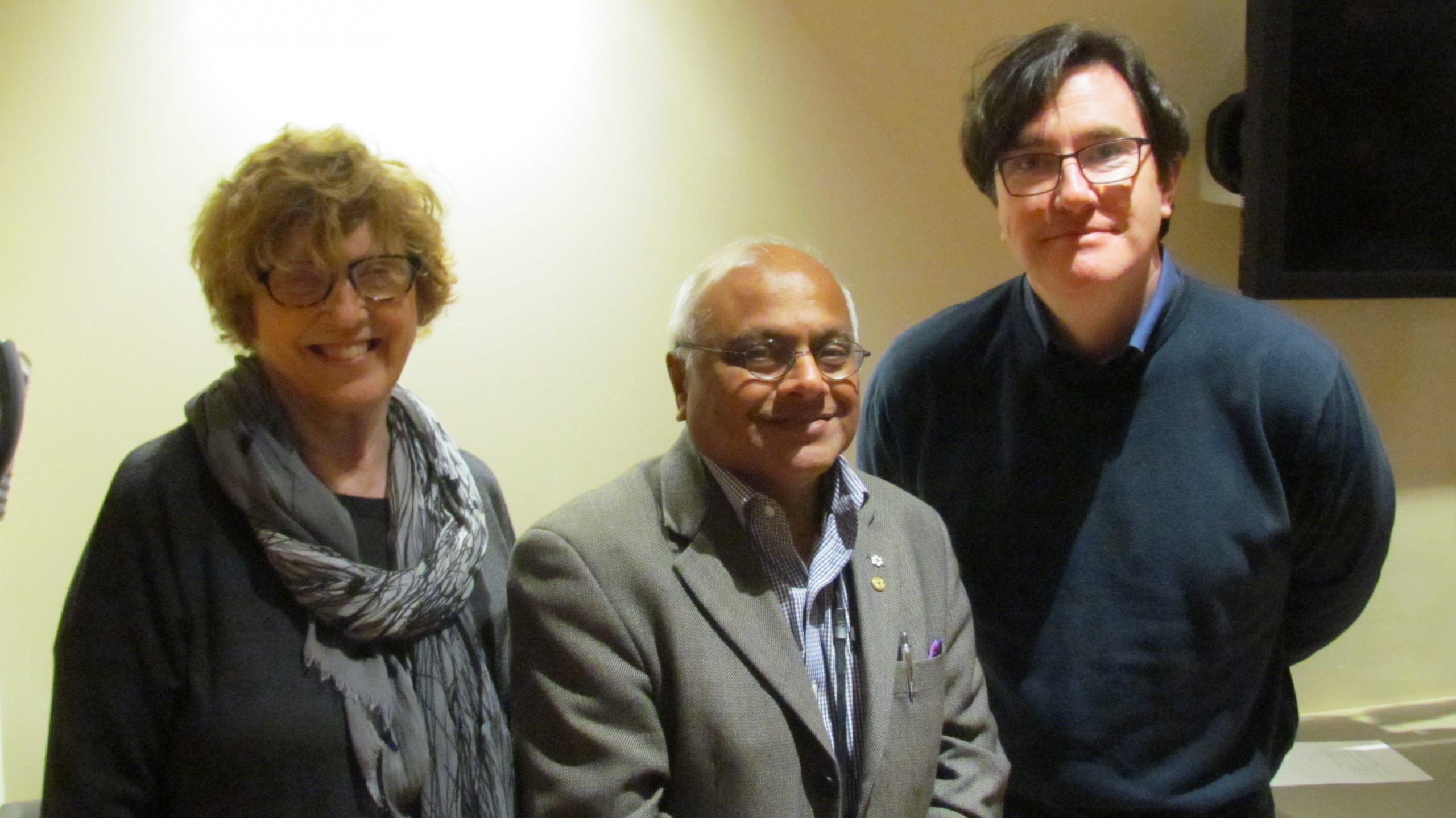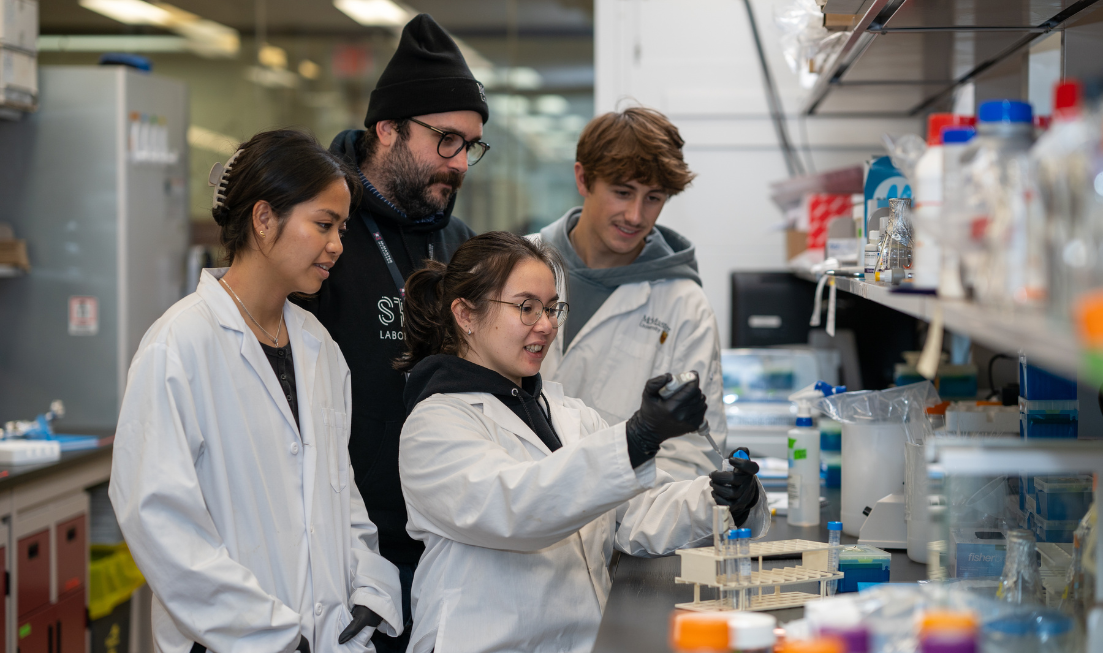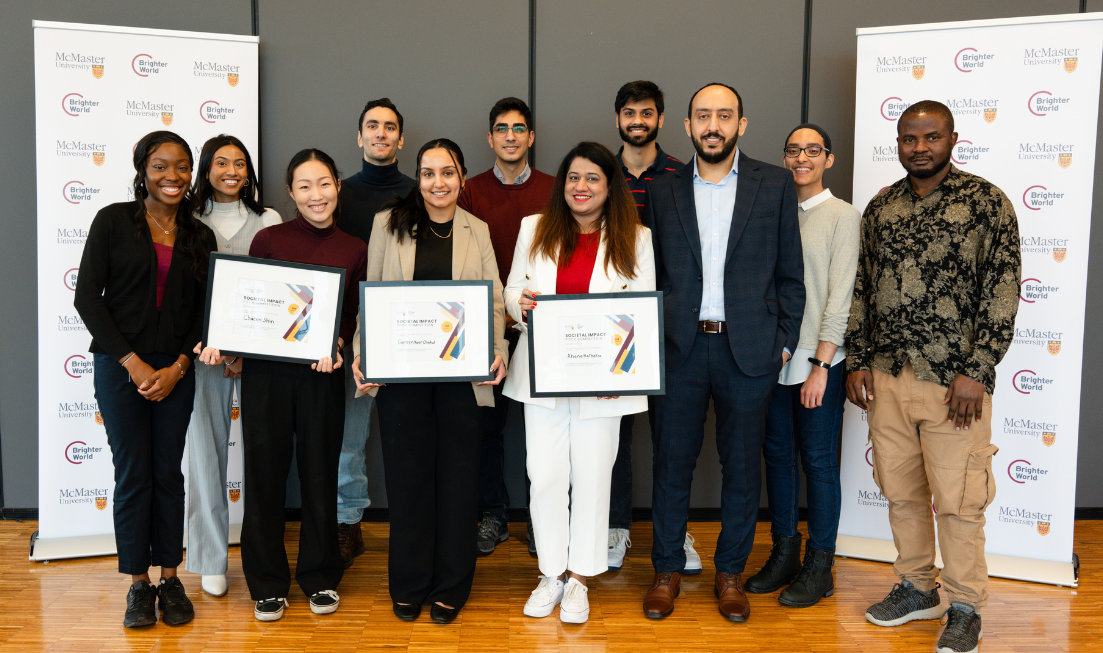Research and Sustainability on the Agenda at Global Health Think Tank

From left: Andrea Baumann, Associate V-P, Global Health; Salim Yusuf, Executive Director, PHRI; and Martin O’Donnell, Associate Clinical Professor, Department of Medicine.
February 1 marked the inaugural McMaster-PHRI Global Health Think Tank, held at the Population Health Research Institute (PHRI). The event’s aim was to connect researchers and educators, and highlight the breadth and scope of global health research occurring across the two institutions.
PHRI researchers summarized over 20 ongoing major global health research projects. “The scope of the research done by the PHRI is staggering, and their findings have real implications for global health policy,” says David Hill, a graduate from the 2014-2015 MSc Global Health program who now works for McMaster’s Global Health Office. The range of research carried out by the PHRI was revealed as the day progressed, highlighting studies on neglected diseases, stroke and heart diseases, frailty, injury, and the list goes on.
Next, representatives from McMaster University discussed some of the challenges in conducting research in low resource settings: populations can be hard to reach, study populations may be vulnerable and lack autonomy, and poor infrastructure can make transportation challenging. Despite these issues, low resource settings offer the potential to apply research methods in innovative ways. Researcher Dr. Deborah DiLiberto suggests that global health research needs to push the boundaries and develop multi-dimensional explanations for the emergence of disease-patterns and health behaviours.
McMaster’s Dr. Sonia Anand highlighted her innovative research with First Nations communities in Canada to illustrate that global health can be practiced locally too. “The very same conditions which make conducting research in low-incoming countries challenges are found right here on Canada’s reserves,” says Anand. She discussed the importance of ensuring that not just the research methods are culturally appropriate, but that the ways in which research findings are disseminated be culturally appropriate as well. One of Anand’s students, for example, used video and spoken word to present her research findings in a way that would resonate with the population she was working with – grandmothers on the Six Nations reserve in Southern Ontario. Watch the video here.
The day concluded with an important conversation about sustainability of research projects and, similarly, sustainability of humanitarian aid projects. “Sustainability is like a relay race,” says Dr. Salim Yusuf, director of the PHRI. “Researchers do what they can, but at some point they need to pass the baton onto government and policy makers.”
The issue of sustainability of global health projects is at the core of McMaster’s MSc Global Health program. “With our program, we hope to create thought leaders who can influence the way we think about sustainability,” says Andrea Baumann, Associate V-P, Global Health. Hill echoes these sentiments. “Throughout the program, I was challenged to think not just about novel and innovative ways to address today’s global health challenges, but to integrate sustainability into every aspect of a project,” says Hill. “From the outset, global health professionals need to think five, ten, even twenty years down the road and the impacts their projects will have,” he concludes.
Global Health News
Related News
News Listing

Daily News ➚
McMaster earns top spot for graduate student research intensity in annual rankings
Global Health News
December 9, 2024

December 4, 2024

McMaster University (Global Health) and the University of Global Health Equity (UGHE), Rwanda Sign a Memorandum of Understanding (MOU)
Global Health News
November 28, 2024
